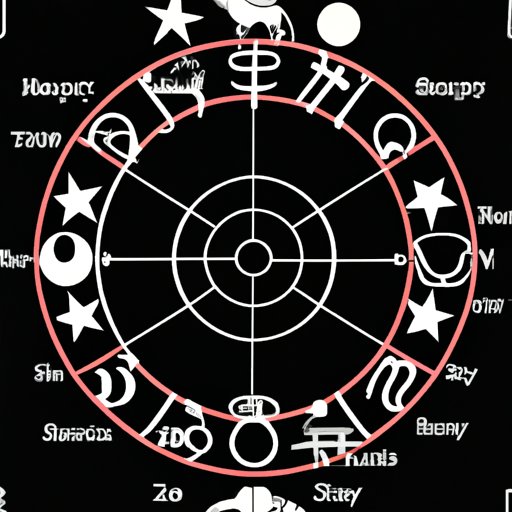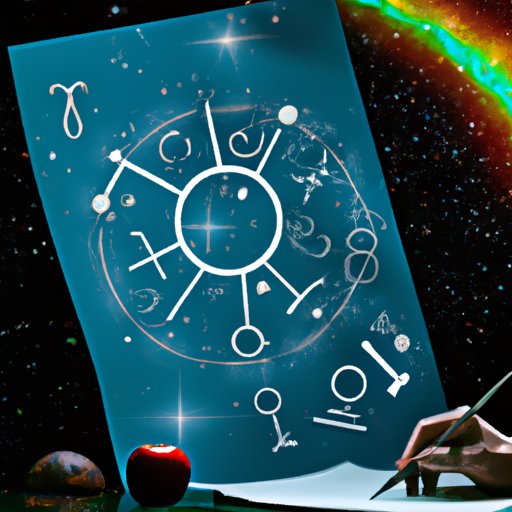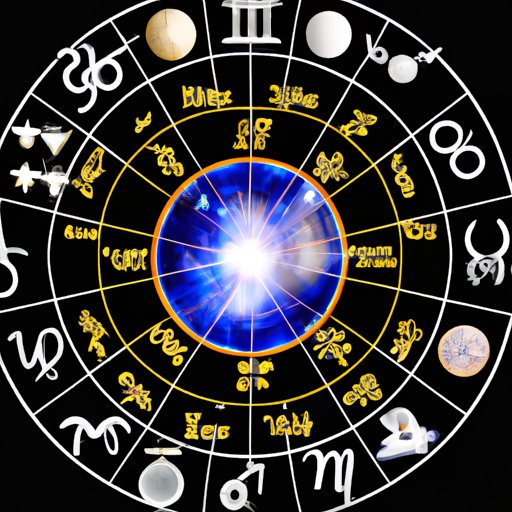Introduction
Astrology is an ancient art that studies the movements and positions of celestial bodies in order to interpret their influence on human affairs. It has been practiced for thousands of years and continues to be popular today. But when was astrology invented? This article will explore the history and development of astrology, examining its earliest records and investigating the role of religion and astronomy in its invention.

Historical Overview of the Development of Astrology
To answer the question of when astrology was invented, it is necessary to trace its origins back to its earliest records. The earliest known evidence of astrological practices comes from ancient Mesopotamia, dating back to the 2nd millennium BCE. This culture believed that the stars were gods, and that they could be used to predict events on earth. They developed a system of astrology based on the twelve signs of the zodiac, which are still used today.
In ancient China, astrology was used to forecast weather patterns and other natural phenomena, such as floods and droughts. It was also used to predict the future and make important decisions about marriage, business, and politics. Ancient Indian texts also contain references to astrology, with some of these texts dating back to the 5th century BCE.
Investigating the Role of Religion in the Invention of Astrology
Religion has played an important role in the invention and development of astrology. In ancient Mesopotamian cultures, the stars were seen as gods or manifestations of the gods. This belief led to the development of religious rituals and ceremonies based on the movements of the stars and planets. In ancient Egypt, astrology was closely linked to the worship of the sun god Ra. This connection between astrology and religion continued into the Middle Ages, when astrologers were often consulted by rulers to make important decisions.
The emergence of Christianity had a profound impact on astrology. Early Christian leaders condemned astrology as a form of paganism, and the practice was largely abandoned in Europe during the Middle Ages. However, this did not stop astrologers from practicing in secret, and astrology eventually made a comeback in the Renaissance period.

Analyzing the Influence of Astronomy on the Creation of Astrology
Astronomy has also played an important role in the development of astrology. In ancient times, astronomers used their observations of the stars and planets to develop theories about the nature of the universe. This knowledge was then used by astrologers to make predictions about the future. For example, the movement of the planet Jupiter was used to predict events such as wars, famines, and epidemics.
In addition, astronomical observations were used to create calendars and other tools that were used by astrologers to make more accurate predictions. These tools allowed astrologers to accurately predict phenomena such as eclipses and the movements of the planets. This knowledge was then used to create horoscopes, which are still used today.
Conclusion
This article has explored the history and development of astrology, examining its earliest records and investigating the role of religion and astronomy in its invention. It is clear that astrology has been practiced for thousands of years, and that its invention was a complex process that involved the contributions of many different cultures. While the exact date of its invention is unknown, it is clear that astrology has a long and rich history that continues to shape its practice today.
(Note: Is this article not meeting your expectations? Do you have knowledge or insights to share? Unlock new opportunities and expand your reach by joining our authors team. Click Registration to join us and share your expertise with our readers.)
